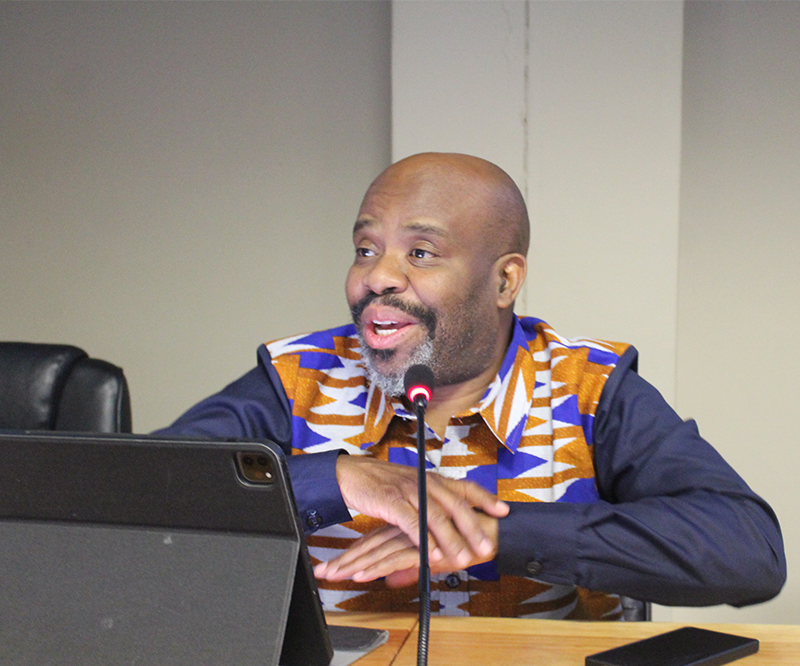Is the decay of municipal infrastructure in South Africa the result of poor monitoring and evaluation, poor planning, or deeper systemic issues? This was the central question posed by Dr Robert Nkuna during his guest lecture on Friday, 15 August 2025, at the School of Government Studies at the North-West University (NWU).
Dr Nkuna, who has served as director-general of the Department of Planning, Monitoring and Evaluation since July 2020, urged participants to reflect beyond surface-level explanations.
“Local government is where the rubber hits the road,” he said. “There is no such thing as national or provincial government if we cannot talk about local government. The three spheres are interdependent, and the failures we see at municipal level may well have national and provincial roots.”
Drawing on examples such as municipalities failing to pay service providers like Magalies Water, he highlighted the gap between awareness and action. “The fact that we all know the problem exists, yet it takes a long time to resolve, raises the question of whether this is truly a planning or monitoring issue. From an academic point of view, the deeper question is: why is this the case?”
Dr Nkuna stressed the need to integrate academic inquiry with public policy practice. “In academia, we ask why the grass is green, not simply whether it is green. Policy responses often stop at managing symptoms. The challenge is finding a nexus between the two, because both are important.”
He argued that institutional design plays a central role in explaining municipal failures. “Nations do not fail because of poor planning and monitoring alone. They fail because of the way institutions are designed. If there is an institutional problem, even perfect monitoring will not solve it.”
Using the metaphor of “sharing oranges,” Dr Nkuna described how local government has often focused on distribution rather than production. “For years, municipalities prioritised the political imperative of representation and access to services. But without building the economic base to sustain that delivery, you eventually run out of oranges to share. That is when decay sets in.”
He also pointed to issues of governance and accountability, referencing cases of wasteful expenditure. “In municipalities like Enoch Mgijima, we see millions spent on facilities that do not function. This reflects not only weak planning but also capture and rent-seeking behaviour, which economics explains through public choice theory.”
As a professor of practice at the NWU, Dr Nkuna encouraged scholars to engage with causality and avoid superficial conclusions. “We must ask what causes what. Sometimes what looks like a local government problem may in fact be rooted in national political or economic arrangements. That is why collaboration between academia and practice is essential.”
The lecture concluded with a call for deeper research and joint problem-solving. “The review of local government led by the Department of Cooperative Governance will raise many issues. But the missing link is how to integrate academic understanding with policy and practice. That is the challenge we must take forward.”

The director-general of the Department of Planning, Monitoring and Evaluation delivers a lecture on challenges facing local government.
